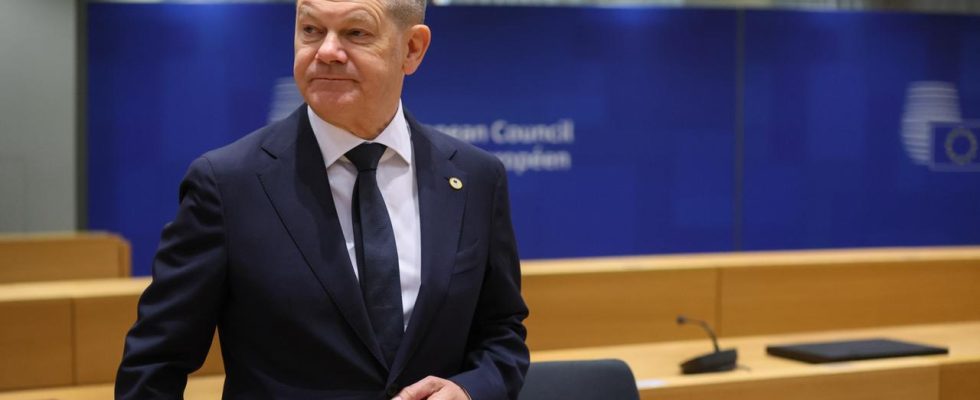The EU does not want to be left behind in international competition. Chancellor Scholz in particular is putting pressure on the economy at the summit in Brussels. But to ensure competitiveness, you need money – and action.
This EU summit brought a clear commitment to completing the capital markets and banking union. At the European level, there is an enormous financial volume that must finally be activated with a view to renewable energies, digitalization or geopolitical crises. That is why there is a need for standardization of the European capital markets, also in the opinion of Federal Chancellor Olaf Scholz.
The Chancellor explained that the insufficiently developed capital market in Europe is probably the main reason why the growth dynamic in Europe is not as great as in other places in the world. He referred to the USA. “The point is that we use the very extensive savings deposits and investments to finance growth in the private sector,” says Scholz. “And if we don’t do that, then there won’t be enough funding for large projects.”
Tasks for the upcoming EU Commission
The 27 heads of state and government want to address the issue again in June. They also commissioned the EU Commission to develop concrete proposals for solving many still unresolved questions. This involves the Europe-wide harmonization of insolvency law or an adjustment of tax systems as well as the monitoring of financial markets or the protection of bank deposits.
These will primarily be tasks for the upcoming EU Commission after the European elections in June. Just like the issue of trade agreements, where more finally needs to happen. At the summit, many criticized the fact that there was no progress on the Mercosur free trade agreement, for example, as Scholz said in the final press conference.
As German Chancellor, he also made it very clear: “We have given trade policy to the Commission as a core competence of European politics, not so that no agreements are concluded, but so that more agreements are concluded.” If the result is that too many agreements are negotiated for ten or even 20 years and are not finalized – then that would be a problem.
Also on the agenda: Ukraine and the Middle East
New sanctions against Iran’s missile and drone program were also decided at this summit. Above all, they want to take action against circumvention of the punitive measures that already exist.
Another topic was Ukraine, which is increasingly on the defensive. It is now important to help the country quickly, especially with anti-aircraft defense, as Chancellor Scholz emphasized again. He found at least some of his colleagues willing to listen – like the Dutchman Mark Rutte, who is very likely the next NATO Secretary General. “It is absolutely necessary to do more,” emphasized Rutte. “I am very happy that Germany wants to deliver another ‘Patriot’ system, in addition to everything that has already been delivered.” The USA and Great Britain are already doing a lot, but Germany is the absolute number one in the EU when it comes to arms deliveries. In the coming days we will discuss how other countries could do more. “‘Patriots’ are of course the first choice for Ukraine’s air defense. But there are alternatives that are not so good, but are effective,” said the Dutch head of government.
In his video message to the summit participants, Ukrainian President Volodymyr Zelensky also listed several systems that could be alternatives to “Patriot” batteries. But air defense is needed now. Whether and how this need can be met will also be the subject of the special meeting of the NATO-Ukraine Council convened for Friday, to which the Ukrainian President will also be joining again.
Matthias Reiche, ARD Brussels, tagesschau, April 18, 2024 8:48 p.m

